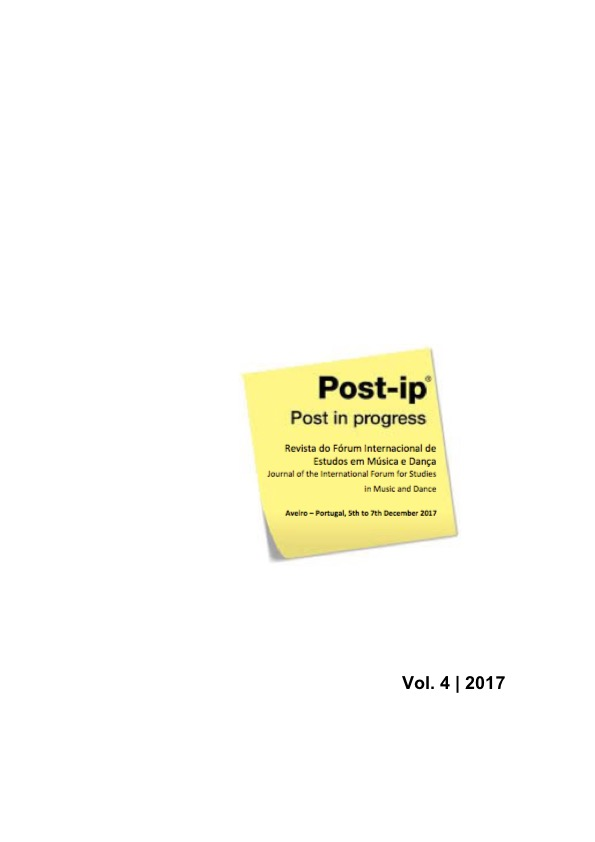Embodying of the Gitano self: fiesta and identity among the Gitanos flamencos
Resumo
Flamenco does not belong only to Gitanos (Spanish Roma or Gypsies) and has transcended culture-specific beginnings to be considered universal. Yet it is the Spanish cultural manifestation most associated with Gitanos, by themselves and by the majority society, that is an important element of their ethnic identity. Based on many years of participant observation of flamenco in the context of the “fiesta flamenca” (literally “flamenco party”) we explore some of the ways in which the expression of flamenco singing (cante), rhythm (compás) (and dance as an occasional reflection of this music) is not only the means of entertainment, but also the language of communication. As a significant element of their identity, it is the cement, which holds together the participants, at the same time that the subtle but significant differences in the cante and compás reflect subtle but important differences of identity among different groups of Gitanos.
Referências
Bourdieu, Pierre (1990), The Logic of Practice, Stanford CA: Stanford University Press
Brooker, Peter (1999), A Glossary of Cultural Theory, Reino Unido: Hodder Education Publishers
Carmona Fernández, Antonio (2001), Revista Bimestral de la Asociación Secretariado General Gitano, 11
Frith, Simon (1996), “Music and identity”, In Hall, Stuart & Du Gay, Paul (ed.)(1996), Questions of Cultural Identity, Thousand Oaks CA: Sage Publications Inc., pp. 108-127
Molina, Manuel (n.a.), Que es el compass?, https://www.facebook.com/flamengoflamenco/videos/1940883146163748/
[accessed 26/02/2017]
Pasqualino, C. (1998), Dire le Chant, les gitans flamencos d'Andalousie, Paris: CNRS Éditions
Peña Fernández, P. (2013), Los Gitanos Flamencos, Córdoba: Almuzara
Piasere, L. (1999), Un mondo di mondi: Antropologia delle culture rom, Napoli: L’Ancora.
Pohren, D. (1980), A Way of Life, Westpoint. CT: Bold Strummer Ltd.
Seisdedos, I. (2017), “Diego Carrasco: ‘Con el tiempo aprenderé a cantar’”, El País digital, https://elpais.com/cultura/2017/11/14/babelia/1510680928_707884.html, [accessed 26/02/2017]
Steingress, G. (2006) “El caos creativo: fiesta y música como objetos de deconstrucción y hermenéutica profunda. Una propuesta sociológica”, Revista Andaluza de Ciencias Sociales, 6, pp. 43-75
Stewart, M. (1997), The Time of The Gypsies, Boulder: Westview Press





